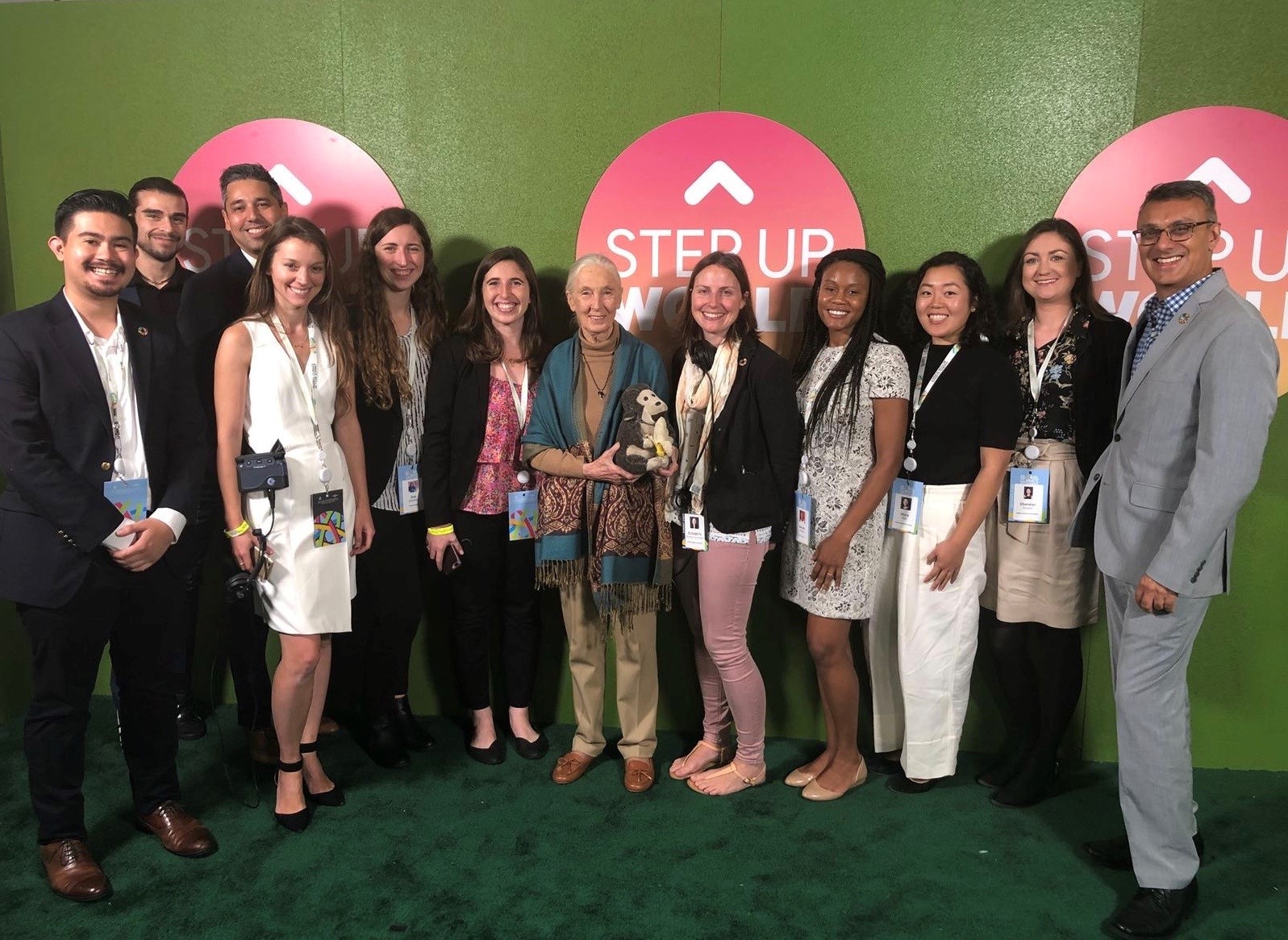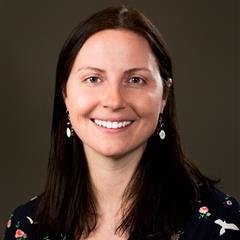XMNR student applies classroom lessons to her work at the United Nations Foundation to help fight COVID-19
June 8, 2020

By Alec Masella
The emergence of COVID-19 has deeply affected how we address sustainability issues. The pandemic has also upended the way we work. Executive Master of Natural Resources (XMNR) student Beth Feliciano has witnessed both first hand.
As the Director of Global Events for the United Nations Foundation, Beth is responsible for hosting dozens of events, in Washington, D.C., New York, and beyond, over the course of a year. The organization, whose mission connects people, ideas, and resources to the work of the United Nations, convenes events around global issues like global health, women and girls, climate change, and more.
Inviting the world to the table, sustainably
“Bringing diverse voices together to find the best solutions to global issues, including the Sustainable Development Goals, is a hallmark of the UN Foundation, and my team is responsible for delivering memorable, impactful events that help us do that,” Beth explains. Last year that included more than 70 in-person events, convening experts, advocates, and thought leaders globally. One of the larger events Beth’s team produces is the We the Peoples dinner in New York, celebrating global leadership with a high-level audience of 400. In collaboration with a third-party consultant, Three Squares Inc., Beth and her colleagues were able to deliver the entire dinner sustainably and have the event certified as carbon-neutral.
Pulling off a successful dinner for 400 is difficult enough. A carbon-neutral dinner for 400 is trickier still, especially when attempting it for the first time. “We tracked our carbon footprint in the areas of transportation, accommodations, energy usage, shipping, and landfill disposal. We were able to divert 1,181 lbs. of items from the landfill and achieve an overall waste diversion rate of 93.1%. We calculated our total emissions at 49.6 metric tons and offset those emissions by supporting a reforestation and afforestation project in India that is supported by the UN Carbon Offset Program,” Beth says. Beth is committed to continuing the practice—when she can.
“My goal is to implement a sustainable event strategy in accordance with best practices in event sustainability using internationally recognized systems, such as ISO 20121, adds Beth. “Sustainability is a thread that runs throughout everything the UN Foundation does—as we rethink what our work looks like post-COVID, we want to ensure we are doing so through the lens of sustainability.”

Building a virtual global community
While the UN Foundation’s work to bring people together to solve today’s most pressing issues continues, the form has changed. Social distancing makes in-person events impossible. Digital events have become the new norm. That means events like the United Nations Association’s Global Engagement Summit, which draws 1,800 advocates from around the country, and typically takes place at the UN Headquarters in New York City, have shifted to virtual convenings.
“The virus has impacted our work tremendously,” says Beth. “We were planning to celebrate the United Nations Charter signing in San Francisco 75 years ago, for instance, but now we are having to think through other ways to celebrate these important moments and convenings through virtual platforms. Right now, it’s hard to say how COVID-19 will impact us in the long run.”
The pandemic has expanded Beth’s portfolio. In mid-March the UN Foundation launched the COVID-19 Solidarity Response Fund for the World Health Organization, as a unique way for individuals and companies to contribute directly to the global fight against the pandemic. This huge fundraising effort has involved many people from all parts of the Foundation, including Beth and her team.
“Hearing the perspectives of classmates from the private sector has allowed me to see that big initiatives often rely on the work of major corporations,” Beth explains. “Thanks to our supporters, the Solidarity Response Fund has already raised over $200 million, which will then be used by the World Health Organization and partners to support countries according to the COVID-19 Strategic Preparedness and Response Plan.”
Bringing work experience to enrich classroom discussions
Beth’s work links directly to the XMNR program, and vice versa. “This work experience has allowed me to bring perspective into the classroom,” she explains. “One of our assignments from last month, for example, was working on water systems to understand how water issues and water system components are interconnected—especially land use, urbanization, agriculture, and source- and storm-water. I was able to bring in my knowledge base on the topics, particularly around public health and economic development, given my exposure to those issue areas at the Foundation. I know from the UN Foundation’s initiatives that certain water issues affect women and children more severely, furthering disparities and inequalities. The project brought my professional and educational worlds together, allowing me to push the discussion forward by drawing on my experiences outside of the classroom.”
Using course content to advance key work initiatives
Similarly, Beth applies the XMNR program to her job. In February, Professor Marc Stern assigned a paper using social science theories to tackle “wicked problems” on a specific sustainability goal. Beth chose to analyze the UN Foundation’s event sustainability strategy against the principles Stern outlines in his book, “Social Science Theory for Environmental Sustainability.” Multi-stakeholder engagement is critical when facing sustainability challenges and solutions, and the program has shown Beth just how expansive this engagement should be. In the fall, Beth is expected to complete her Independent Development Process (IDP), which allows students to explore an area of interest in the field of sustainability. The goal is to advance a new field or professional project, deepen subject matter expertise, or complete an updated assessment of career goals post-XMNR.
Recognizing opportunities for leadership
“There’s a huge leadership component to this program,” Beth says. “Leading from where you are is perhaps the most prominent theme throughout my courses, and the most important for my professional work.”
How you can support the COVID-19 Solidarity Response Fund
- On the site: https://covid19responsefund.org
- Via Facebook Fundraiser
- Dedicated donation page by Google
- Donate by text via U.S. mobile carriers: to give $25, text WHO25 to 501501; to give $50, text WHO50 to 501501
- For corporate and foundation giving, please contact COVID19Fund@unfoundation.org

Beth Feliciano is the Director of Global Events for the United Nations Foundation, overseeing the production and execution of all pan-foundation marquee and top priorities moments. She also co-leads the UN Foundation’s Green Team, which spearheads the effort to implement a sustainable core strategy for internal- and external-facing events and business practices. She brings 14 years of experience in the events/hospitality industry with a strong focus on negotiations, project management, and client relations. A true Jersey Girl, she holds a B.A. in Political Science from Monmouth University. While she misses real slices of pizza and pork roll, she’s come to know and love Arlington, Virginia as home with her husband and daughter.


